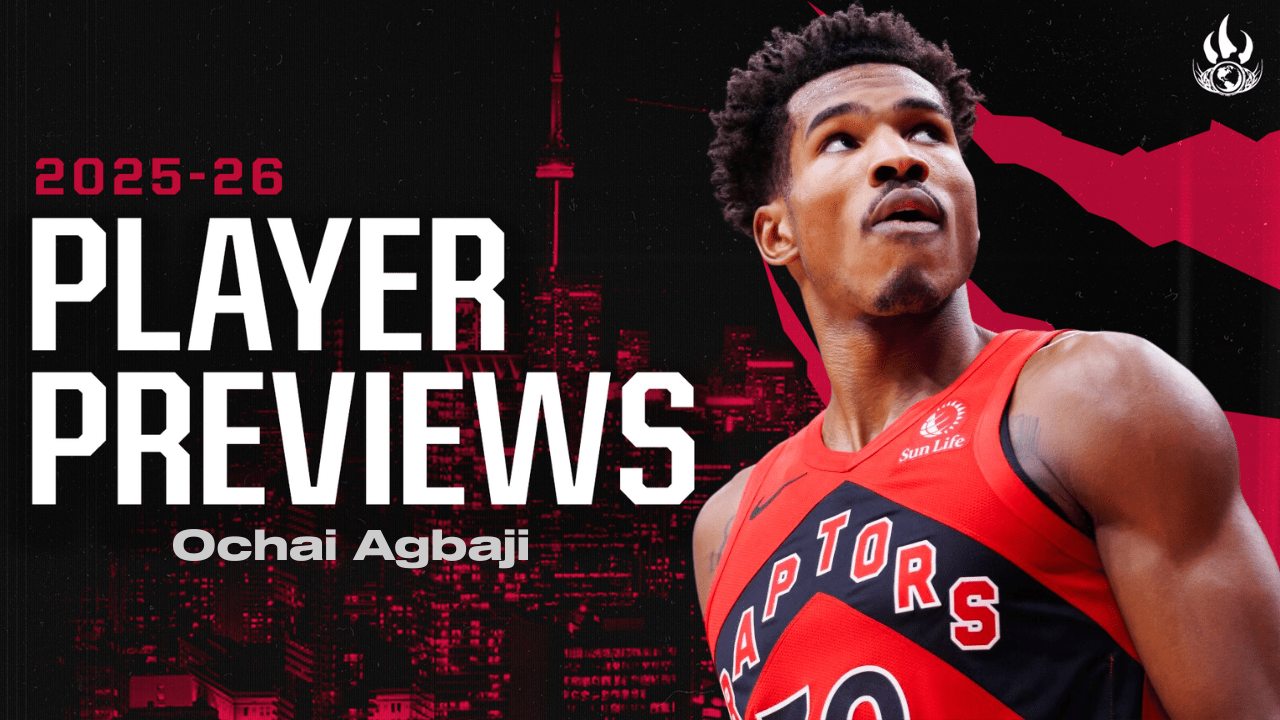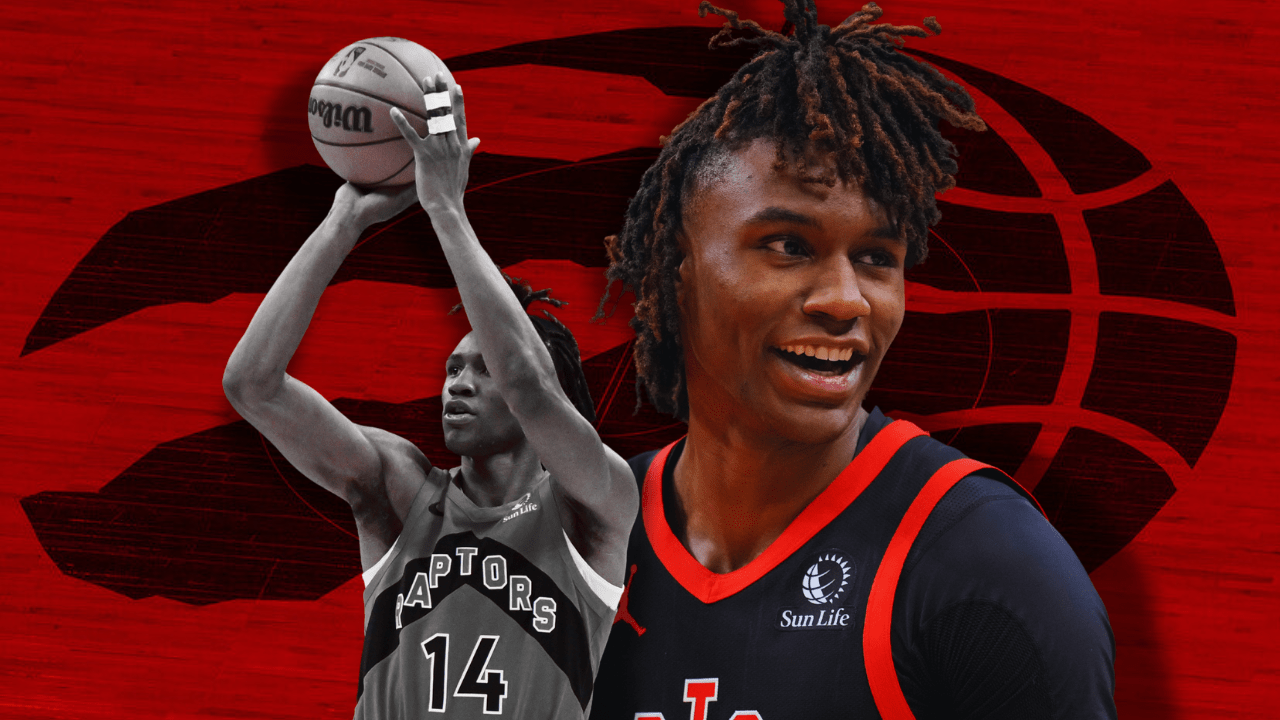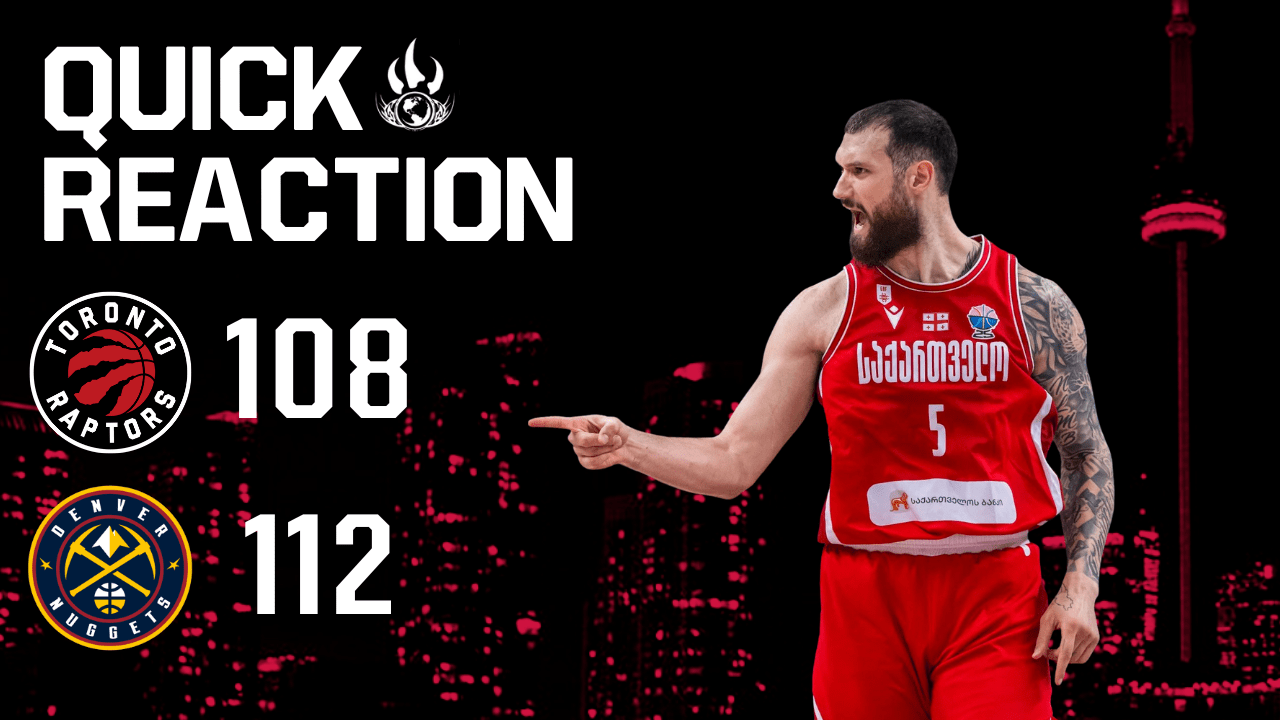The following is part of Raptors Republic’s series of pieces previewing the season for the Toronto Raptors. You can find all the pieces in the series here.
On the eve of the 2025-26 NBA preseason, one final season preview remains—and it’s a significant one. Ochai Agbaji is coming off a breakout campaign with the Toronto Raptors, marking his first full season with the team. In year three, Agbaji seized his opportunity, starting 45 games and averaging 27.2 minutes per contest—both career highs. He also posted personal bests across nearly every major statistical category: field goals made and attempted, field goal percentage (49.8%), three-point makes and attempts, three-point percentage (39.9%), rebounds, assists, steals, and points per game.
After a quiet start to his Raptors tenure following a midseason trade from Utah in 2023-24 (alongside Kelly Olynyk), Agbaji capitalized on a fresh opportunity with a rebuilding and injury-depleted Toronto squad. He stepped up in a big way, showing flashes of becoming a prototypical 3-and-D wing. With the Raptors still navigating health concerns, it wouldn’t be surprising to see Agbaji notch another 20-plus starts this season. He’s already proven he can hold his own as a two-way contributor.
Offensively, Agbaji played within his role, often spacing the floor from the corners and making defences pay when left open. His efficiency was remarkable—just shy of the elite 50/40 threshold. On the other end, he was frequently tasked with defending top perimeter threats and didn’t back down, contributing a career-best 1.6 defensive win shares. When Toronto found its defensive identity late in the season, Agbaji was a key catalyst.
Though listed at 6’5″, Agbaji’s athleticism more than makes up for any perceived size disadvantage. His vertical pop is a defining trait of his game, especially when defending the rim or finishing in transition. Agbaji will be competing with Gradey Dick, Jamal Shead, and Collin Murray-Boyles for key minutes off the bench—but his elite shooting efficiency on a team that struggles from deep, combined with his defensive versatility, gives him a strong case for a steady role. Heading into his fourth year, Agbaji is expected to begin the season in a reserve role, with Toronto healthier and deeper than last year. ESPN’s projected depth chart has him slotted as the backup small forward behind Brandon Ingram, but in today’s positionless NBA, Agbaji’s versatility allows him to slide between the 2 through 4 spots depending on the matchup.
Before arriving in Toronto, Agbaji showed flashes in Utah, but questions remained about his long-term role on a contending roster. After a strong 2024-25 season, he’s answered many of those doubts. This year is a pivotal one: with continued efficiency and impact, Agbaji can firmly establish himself as a nightly rotation player and a valued piece in the Raptors’ future plans—and perhaps the league more broadly. A successful season for Agbaji would mean maintaining his efficiency, approaching the coveted 50/40 shooting splits once again, and continuing to make a strong impact on the defensive end.



